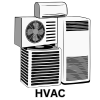Yes — pneumatic (compressed air) brakes are considered very safe, especially for heavy vehicles like trucks, buses, and trains.
Also read: Why semi-Trucks use air brakes?
Here’s why they are safe and reliable:
1. Fail-Safe Design
- If air pressure is lost due to leakage or compressor failure, spring brakes automatically engage and stop the vehicle.
- This prevents uncontrolled movement — a major safety advantage over hydraulic brakes, which would fail if fluid leaks out.
2. High Braking Power
- Compressed air can transmit very high force, making it suitable for heavy vehicles carrying large loads.
- Multiple axles can be braked evenly using air distribution.
3. No Risk of Fluid Leakage
- Since the system uses air (not liquid), there’s no risk of brake failure due to fluid leaks or boiling of hydraulic fluid under high temperature.
4. Easy Integration with Trailers
- Air brakes can easily connect to multiple trailers through glad hands (air hose couplings) — maintaining braking performance and safety across all trailers.
5. Warning Systems
- Air brake systems have low-pressure warning alarms (lights/buzzers) that alert the driver before pressure drops to an unsafe level.
Potential Risks (If Poorly Maintained)
- Moisture buildup in tanks can freeze or corrode parts — tanks must be drained regularly.
- Air leaks, worn hoses, or faulty valves can delay brake application (air lag).
- Lack of proper maintenance can make brakes sluggish or uneven.
Pros:
- Fail-Safe Design: Brakes automatically engage if air pressure is lost.
- High Braking Power: Can stop very heavy vehicles effectively.
- No Fluid Leakage Risk: No hydraulic fluid to leak or boil.
- Trailer Integration: Works safely across multiple trailers.
- Warning Systems: Alerts driver of low air pressure before danger.
Cons / Risks (if poorly maintained):
- Moisture Issues: Can freeze or corrode parts if tanks aren’t drained.
- Air Leaks / Faulty Components: Can delay braking or reduce effectiveness.
- Maintenance Dependent: Poor upkeep can make brakes sluggish or uneven.
✅ Conclusion:
Pneumatic brakes are very safe when properly maintained — in fact, they are the standard choice for heavy commercial vehicles worldwide because of their reliability and fail-safe design.
Other courses:



